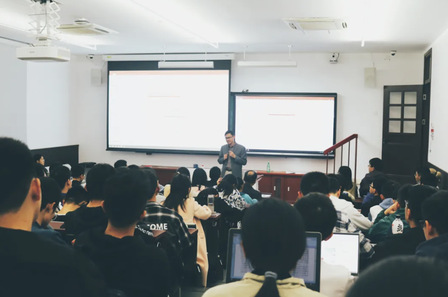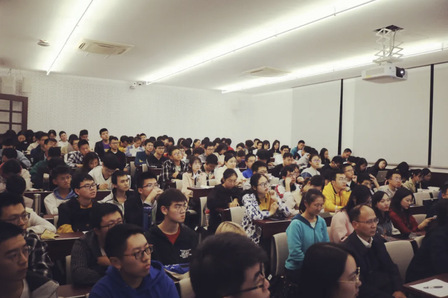News



Hosted by the Institute for China & World Studies and the School of Political Science & International Relations (SPSIR) of Tongji University, the Tongji Serial Lectures on Social Sciences No.29 was successfully held in Room 313, South Building, Siping Campus on November 4, 2020. Prof. Lin Minwang from the Institute of International Studies, Fudan University was invited to give a keynote speech entitled “China-India Relations in the New Era” for the teachers and students of Tongji. Prof. Zheng Chunrong, Associate Dean of SPSIR and Director of the Center (Think Tank) for German Studies at Tongji University, moderated this lecture.

Prof. Lin’s lecture focused on the three aspects: the clash at the border between China and India, the historical development of China-India relations, and China-India relations in the new era. First of all, Prof. Lin pointed out that the boundary issue is at the core of the clash at the border. On this basis, he first described the cause, process and development of the Galwan River Valley Incident in 2020, and then analyzed the roles and reactions of large and small countries such as the US, Russia, Pakistan and Bangladesh in the incident, along with his own views on the development prospects of the incident. Then, he recalled the standoff in Dong Lang in 2017, and analyzed the origin and course, focus of dispute and resolution of the incident and its impact.
Next, Prof. Lin elaborated on the historical development of China-India relations. In this part, he introduced three milestone events. The first one was in 1962. At that time, the war at the border intensified the conflict between China and India, and India’s aggressive posture on the boundary issue made the bilateral relations continue to deteriorate. The second one was Rajiv Gandhi’s visit to China in 1988. The changes in the world’s strategic situation had created good international conditions for the improvement of China-Indian relations. And after the end of the Cold War, both China and India had a clearer willingness to strengthen their own national strength and develop their own economy. As such, it turned out to be more important to improve the diplomatic relations. The third was in 2008. The trade deficit between China and India was widening, while China was deepening its relations with other countries in South Asia, not only reducing India’s economic benefits, but also threatening its political status. Therefore, China-Indian relations began to deteriorate and this situation has continued to this day.
Prof. Lin then shared his insights on the factors affecting the China-Indian relations in the new era. In his opinion, internal factors include the ongoing border standoff, India’s perception of the Belt and Road Initiative, the China-US trade war, the construction of the China-Pakistan Economic Corridor and India’s concerns about China’s deep involvement in the India-Pakistan dispute. At the same time, China’s expanding influence in South Asia has also objectively caused India to feel that its strategic space is being squeezed. Therefore, the balance of power and the changes in the pattern of South Asia are among the underlying factors affecting the development of China-India relations in the new era.
Finally, Associate Dean Zheng Chunrong briefly summarized the lecture, and once again thanked Prof. Lin for giving such a valuable lecture to Tongji teachers and students. The lecture ended successfully in warm applause.
